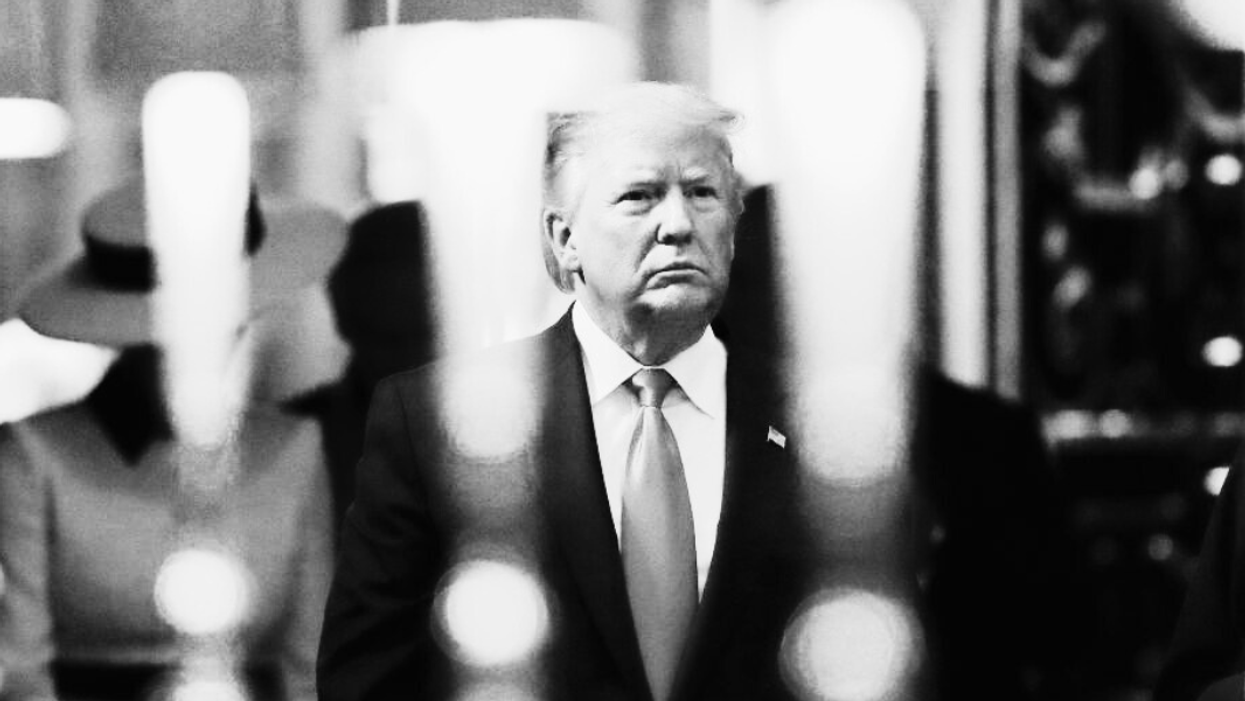David Nevins is co-publisher of The Fulcrum and co-founder and board chairman of the Bridge Alliance Education Fund.
Trump is the man in the arena, as the fate of our democracy has so often revolved around this one man's performances. He may indeed fit the description of the man in the arena in the famous speech by President Teddy Roosevelt at the Sorbonne in Paris, France on April 23, 1910:
It is not the critic who counts; not the man who points out how the strong man stumbles, or where the doer of deeds could have done them better. The credit belongs to the man who is actually in the arena, whose face is marred by dust and sweat and blood; who strives valiantly; who errs, who comes short again and again, because there is no effort without error and shortcoming; but who does actually strive to do the deeds; who knows great enthusiasms, the great devotions; who spends himself in a worthy cause; who at the best knows in the end the triumph of high achievement, and who at the worst, if he fails, at least fails while daring greatly, so that his place shall never be with those cold and timid souls who neither know victory nor defeat.
This is an incomplete comparison to Trump, as pieced from Roosevelt’s message. Roosevelt goes on to say the following:
A democratic republic such as ours—an effort to realize in its full sense government by, of, and for the people—represents the most gigantic of all possible social experiments, the one fraught with great responsibilities alike for good and evil. The success of republics like yours and like ours means the glory, and our failure the despair, of mankind; and for you and for us the question of the quality of the individual citizen is supreme. Under other forms of government, under the rule of one man or very few men, the quality of the leaders is all-important.
And so it is the quality of the individual that must reign supreme. This man (meaning Trump) in the arena today is quite skillful at misleading himself as he first deceives himself so he can better deceive others. Today, as we watch Trump abandon both his friends and the Constitution of the United States, there are far too few who believe like Roosevelt that the individual citizen is supreme.
There are exceptions of course and former Vice President Mike Pence is one:
“Anyone who puts himself over the Constitution should never be president of the United States,” the former vice president said shortly after the indictment of Donald Trump.
Of course those who believe in Trump will say he is the embodiment of the man Roosevelt described; one who fights against his critics, one who gets up when knocked down, and one with incredible tenacity. Yet, we must also prepare to defend democracy from autocratic tendencies reframed as heroic antics as the politicization of our justice system by Trump and his co-conspirators has just begun.
As we watch the spectacle play out before us, a phrase coined by P.T. Barnum, showman, businessman and politician of the early 1800’s comes to mind; “There’s a sucker born every minute.”
Barnum, of course, was referring to the performances of his con-men at carnivals and circuses of the time. Call Trump what you may: con artist, snake oil salesman, huckster, or charlatan, he is a master of the game. The successful con artist plays by certain rules; of course, they are his own, not those of civil society. To succeed the con artist must exaggerate, change the subject, and convince the buyer of his great success. In this case the American voter is the buyer, oftentimes conned to praise the con artist for solutions to problems he himself authored.
The con artist relies on the worst instincts in his audiences to make the sale; emotions of fear, being better than other people, envy, and greed. To be successful he must bring out the worst in his customer (i.e. the voter), vanishing from responsibility once the trap of the con is laid and set. But this is not to diminish the con man's ability; he pulls complicated and delicate strings, establishing himself as the man in the arena with unique responsibility. We are already witnessing the accusations and innuendos, the misinformation and vilification of those within the Justice Department.
Will we find the courage as a nation to have our voices heard to protect and defend our democratic republic for future generations? Will we understand that, whether we are Democrats, Republicans or Independents, what we have in common is stronger than what separates us. Will we have the wisdom and confidence to overcome our current circumstances? Will our nation be an example of the profiles in courage expressed by President John F. Kennedy over 50 years ago:
“In whatever arena of life one may meet the challenge of courage, whatever may be the sacrifices he faces if he follows his conscience – the loss of his friends, his fortune, his contentment, even the esteem of his fellow men – each man must decide for himself the course he will follow.”
The survival of our democratic republic will require each of us individually to have the courage to take action outside of our normal comfort zone. If we each do so, our individual courage will inspire others to do the same and be the galvanizing force to change what is possible.
Will we have that courage?


















 "On the Frontlines of Democracy" by Nonprofit Vote,
"On the Frontlines of Democracy" by Nonprofit Vote,

Trump & Hegseth gave Mark Kelly a huge 2028 gift